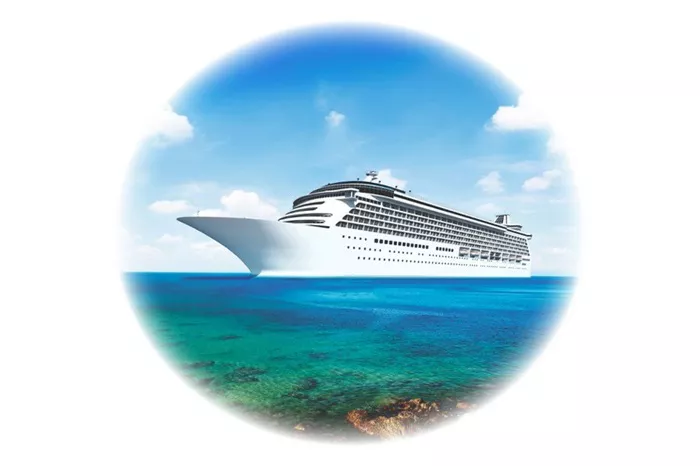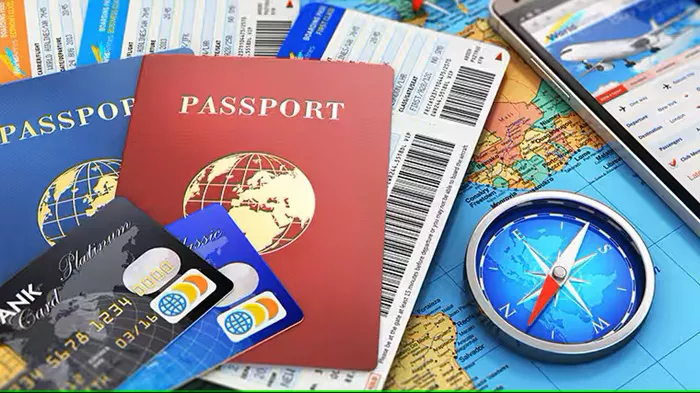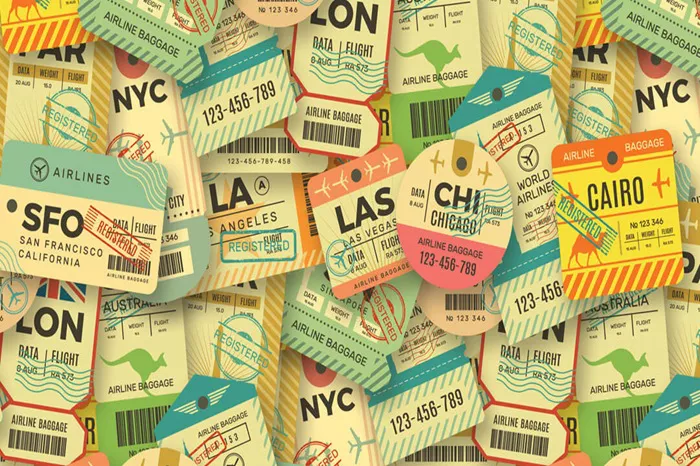When planning a holiday, ensuring you have the right coverage is crucial. Understanding what holiday insurance covers can make a significant difference in how you handle unexpected events. This article will delve into the comprehensive details of holiday insurance coverage, highlighting key aspects to consider for a secure and worry-free trip.
Understanding Holiday Insurance
Holiday insurance is designed to protect travelers from a variety of unforeseen issues that may arise during their trip. It offers financial protection and support in situations that can disrupt your travel plans. The primary aim is to provide peace of mind by covering various risks associated with traveling.
Medical Expenses
One of the most critical components of holiday insurance is coverage for medical expenses. This includes:
Emergency Medical Treatment
If you fall ill or get injured while abroad, holiday insurance covers the cost of medical treatment. This can include hospital stays, surgeries, and medication.
Emergency Medical Evacuation
In severe cases, you may need to be transported to a medical facility or back home for treatment. Insurance can cover these high-cost evacuations.
Repatriation
If a serious incident occurs, holiday insurance can cover the cost of returning your body to your home country.
Trip Cancellation and Interruption
Trip cancellation and interruption coverage protects you from losing money on non-refundable travel expenses if you have to cancel or cut short your trip due to unforeseen circumstances. This can include:
Cancellation Due to Illness
If you or a close family member becomes ill before your trip, insurance can reimburse you for prepaid, non-refundable expenses.
Interruption Due to Emergencies
If you need to return home early due to an emergency, insurance can cover additional travel costs and any unused portion of your trip.
Lost or Delayed Baggage
Losing your luggage or experiencing delays can be frustrating and inconvenient. Holiday insurance provides coverage for:
Lost Baggage
If your luggage is lost or stolen, insurance can reimburse you for the value of your belongings.
Delayed Baggage
If your luggage is delayed for a certain period, insurance can cover the cost of purchasing essential items until your baggage is returned.
Travel Delays
Travel delays can disrupt your plans and incur additional costs. Insurance coverage for travel delays includes:
Accommodation Costs
If a delay causes you to stay overnight unexpectedly, insurance can cover the cost of accommodations.
Meal Expenses
Insurance can reimburse you for additional meal expenses incurred due to delays.
Personal Liability
Personal liability coverage is crucial in case you are held responsible for damage or injury caused to others. This includes:
Property Damage
If you accidentally damage someone else’s property, insurance can cover the repair or replacement costs.
Injury to Others
If your actions cause injury to another person, insurance can cover legal costs and compensation claims.
Emergency Assistance Services
Holiday insurance often includes access to emergency assistance services, such as:
24/7 Assistance Hotline
Access to a hotline for help with medical, legal, or travel-related issues.
Travel Assistance
Support with rebooking flights, finding medical facilities, and other travel-related needs.
Pre-existing Medical Conditions
Coverage for pre-existing medical conditions varies by policy. It’s important to:
Declare Pre-existing Conditions
Inform your insurer about any existing medical conditions to ensure you receive appropriate coverage.
Check Policy Details
Review your policy to understand how pre-existing conditions are covered.
Activities and Sports Coverage
If you plan to engage in activities or sports during your trip, make sure your policy covers:
Adventure Sports
Activities like skiing, diving, or hiking may require additional coverage due to higher risk.
Exclusions
Check for any exclusions related to specific activities or sports.
Exclusions and Limitations
Understanding exclusions and limitations in your policy is essential.
Common exclusions include:
High-Risk Activities
Some policies do not cover certain high-risk activities or sports.
Travel Against Advice
Insurance may not cover incidents if you travel to areas advised against by authorities.
Alcohol and Drug-Related Incidents
Incidents occurring under the influence of alcohol or drugs may not be covered.
Choosing the Right Policy
Selecting the right holiday insurance policy involves:
Assessing Your Needs
Consider your destination, activities, and personal health when choosing coverage.
Comparing Policies
Compare different policies to find one that offers the best coverage for your needs.
Reading the Fine Print
Carefully read the policy details to understand coverage limits and exclusions.
See Also: How Do I Claim My Holiday Insurance?
Conclusion
Understanding what holiday insurance covers is vital for a secure and enjoyable trip. By considering aspects such as medical expenses, trip cancellations, baggage issues, and personal liability, you can ensure you are well-prepared for any unexpected events. Proper coverage provides peace of mind and financial protection, allowing you to focus on enjoying your holiday.
FAQs
1. What does holiday insurance typically cover?
Holiday insurance generally covers a range of risks associated with traveling. This includes medical expenses for emergency treatment, emergency evacuation, and repatriation. It also covers trip cancellation or interruption, lost or delayed baggage, and travel delays. Additionally, personal liability coverage is included to protect against damage or injury you might cause to others. Some policies may offer emergency assistance services, such as 24/7 helplines and travel support. Always review the specific policy details to understand the extent of coverage, as different insurers may offer varying levels of protection.
2. How do I know if my pre-existing medical conditions are covered?
Coverage for pre-existing medical conditions can vary significantly between policies. To ensure your conditions are covered, you should:
Declare All Pre-existing Conditions: Inform your insurance provider about any existing health issues when purchasing the policy. This allows the insurer to assess the risk and provide appropriate coverage.
Review Policy Details: Check the policy terms and conditions for any specific exclusions related to pre-existing conditions. Some policies may offer coverage for these conditions but might have specific terms or higher premiums.
Seek Clarification: If you’re unsure about coverage, contact the insurer directly for clarification. This helps avoid surprises if you need to make a claim related to a pre-existing condition.
3. What types of activities and sports are covered under holiday insurance?
Coverage for activities and sports can vary. Most standard policies cover basic activities, but for high-risk or adventure sports, additional coverage might be required. Here’s what to consider:
Standard Activities: Common activities like sightseeing, swimming, and hiking are generally covered under most policies.
Adventure Sports: If you plan to engage in activities such as skiing, scuba diving, or skydiving, check if your policy includes these. Some policies provide additional coverage for adventure sports, while others may exclude them unless you purchase a specific add-on.
Exclusions: Always review the exclusions section of your policy. Activities deemed high-risk or excluded altogether may not be covered, which could affect claims related to injuries or accidents from those activities.
4. What should I do if my luggage is lost or delayed?
If your luggage is lost or delayed, follow these steps to ensure you’re covered:
Report the Issue Immediately: Contact the airline or travel provider as soon as you realize your luggage is missing or delayed. Obtain a report or claim number for documentation.
Keep Receipts: If you need to purchase essential items while waiting for your luggage, keep all receipts. Many policies reimburse costs for essential items if your baggage is delayed for a certain period.
File a Claim: Submit a claim with your holiday insurance provider, including the report from the airline, receipts for any essential purchases, and any other required documentation.
5. Can holiday insurance cover travel delays caused by weather?
Travel insurance can cover delays caused by weather, but it depends on the policy. Typically, insurance can cover:
Accommodation Costs: If a weather-related delay forces you to stay overnight unexpectedly, insurance can cover the cost of accommodations.
Meal Expenses: If the delay causes additional meal expenses, these may be reimbursed by your policy.
Check Specific Terms: Policies may have different terms regarding coverage for weather-related delays. Review your policy to understand what is included and any limitations or exclusions.
6. Are there any common exclusions in holiday insurance policies?
Yes, holiday insurance policies often have specific exclusions. Common exclusions include:
High-Risk Activities: Some policies do not cover activities like extreme sports or dangerous pursuits unless additional coverage is purchased.
Travel Against Advice: If you travel to areas that travel advisories warn against, your insurance may not cover related incidents.
Alcohol and Drugs: Incidents occurring under the influence of alcohol or drugs are typically excluded from coverage.
Pre-existing Conditions: As mentioned earlier, some policies may exclude coverage for pre-existing medical conditions unless declared and covered specifically.






















